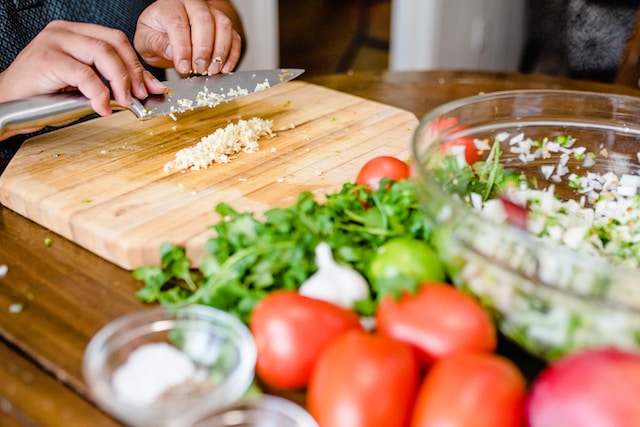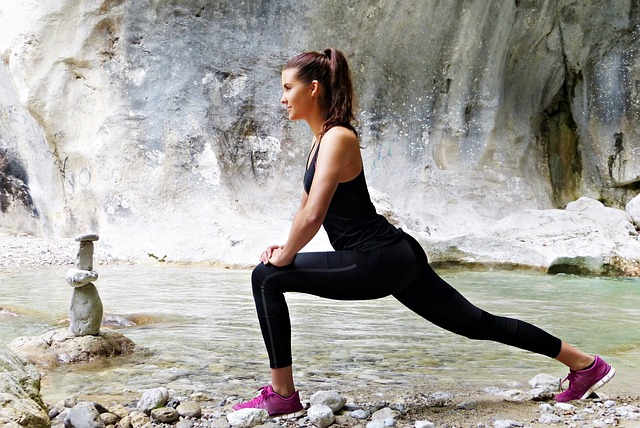
In the ever-growing popularity of veganism and the pursuit of a healthier lifestyle, many individuals have embraced a plant-based diet as a way to become more conscious of their food choices. Not only does veganism contribute to animal welfare and promote sustainability, but it also offers a myriad of health benefits. However, like any dietary change, adopting a vegan lifestyle can present its fair share of obstacles. In particular, you have to be ready to face some vegan fitness challenges.
Engaging in physical activity while maintaining a vegan diet may require some adjustments and careful consideration. Whether you are a seasoned athlete or just starting your fitness journey, understanding the potential obstacles and discovering effective solutions is vital to your success.
Challenge 1: Meeting Protein Needs
One of the most common vegan fitness challenges is the adequacy of protein intake. Protein plays a crucial role in muscle repair, growth, and recovery, making it essential for individuals engaging in fitness activities. However, with careful planning and an understanding of plant-based protein sources, meeting your protein needs is more than achievable.
- Legumes: Lentils, chickpeas, black beans, and other legumes are excellent sources of plant-based protein. They are not only high in protein but also rich in fiber, vitamins, and minerals.
- Soy Products: Foods like tofu, tempeh, and edamame are complete protein sources, meaning they contain all essential amino acids necessary for muscle development and repair.
- Quinoa: This versatile grain not only offers a substantial protein punch but also contains all nine essential amino acids, making it a valuable addition to a vegan fitness diet.
- Nuts and Seeds: Almonds, sunflower seeds, chia seeds, and hemp seeds are excellent options for adding protein to your meals and snacks. They also provide healthy fats and other valuable nutrients.
- Seitan: Made from wheat gluten, seitan offers a dense source of protein and is often used as a meat substitute in vegan dishes. It has a meat-like texture and can be seasoned to enhance flavor.
Meal Planning and Tracking
In addressing vegan fitness challenges, especially those pertaining to meeting your protein needs, it can be helpful to plan your meals and keep track of your protein intake. Online apps or food diaries can be useful tools for monitoring your protein consumption. Aim for a balanced distribution of protein throughout your meals and snacks, incorporating plant-based protein sources mentioned above.
Supplementation
While a well-planned vegan diet can undoubtedly meet your protein requirements, some individuals may prefer to supplement their protein intake for added convenience and assurance. Vegan protein powders made from sources like pea, brown rice, or hemp can be used in smoothies or protein shakes to boost your protein intake. However, it’s essential to choose reputable brands and opt for natural and minimally processed options.

Challenge 2: Ensuring Sufficient Iron Intake
Another one of the most pressing vegan fitness challenges is ensuring adequate iron intake. Iron is an essential mineral that plays a crucial role in carrying oxygen to muscles and tissues, making it vital for overall athletic performance. While it is commonly believed that meat is the primary source of iron, there are plenty of plant-based alternatives that can satisfy your iron needs. However, it is important for vegan fitness enthusiasts to pay attention to their iron intake due to the difference in iron absorption between plant-based and animal-based sources.
- Leafy Green Vegetables: Dark leafy greens such as spinach, kale, and broccoli are excellent sources of plant-based iron. They are also rich in vitamin C, which aids in iron absorption.
- Fortified Foods: Many plant-based products, including cereals, bread, and plant-based milk alternatives, are fortified with iron to ensure adequate intake.
- Seeds and Nuts: Pumpkin seeds, sesame seeds, cashews, and almonds are not only nutritious but also contain iron. Snacking on these plant-based sources can be a great way to boost your iron intake.
- Quinoa and Amaranth: These pseudo-grains are not only protein-rich but also pack a good amount of iron.
Meal Planning and Tracking
Similar to tracking protein intake, it can be helpful to plan your meals and keep track of your iron consumption. Aim for a well-balanced distribution of iron-rich foods throughout your day. Pairing iron-rich foods with sources of vitamin C, such as citrus fruits, tomatoes, or bell peppers, can enhance iron absorption.
Supplementation
While a balanced vegan diet can provide sufficient iron, some individuals, especially female athletes, may benefit from iron supplementation to meet their increased iron needs. However, it is essential to consult with a healthcare professional before starting any supplementation regimen to ensure proper dosage and avoid potential risks.
Cooking Tips for Maximizing Iron Absorption:
Cooking and soaking legumes and seeds can increase their iron availability. Pairing iron-rich foods with sources of vitamin C, such as adding lemon juice to your leafy green salad, can enhance iron absorption. Avoid consuming calcium-rich foods, such as dairy or fortified plant-based milk, during iron-rich meals as calcium can inhibit iron absorption.
Challenge 3: Addressing Vitamin B12 Deficiency

One of the notable vegan fitness challenges faced by individuals on a plant-based fitness journey is the risk of vitamin B12 deficiency. Vitamin B12 is a crucial nutrient that plays a vital role in nerve function, red blood cell production, and overall brain health. While some plant-based foods may contain traces of vitamin B12, it is primarily found in animal products. As a vegan, it is essential to be aware of this challenge and employ strategies to ensure adequate intake of this vital nutrient.
Identifying Vegan Vitamin B12 Sources:
Although plant-based sources of vitamin B12 are limited, there are a few options to consider to meet your dietary needs:
- Nutritional Yeast: Nutritional yeast is a popular ingredient among vegans, not only for its cheesy taste but also because it is often fortified with vitamin B12. Incorporating nutritional yeast into your meals, such as sprinkling it on popcorn or adding it to sauces and dressings, can be a good way to boost your vitamin B12 intake.
- Fortified Plant-Based Milk and Cereals: Many plant-based milk alternatives, such as soy, almond, and oat milk, are fortified with vitamin B12. Similarly, some breakfast cereals are also enriched with this essential nutrient. Reading labels and opting for fortified varieties can help ensure you are getting adequate vitamin B12.
- Vitamin B12 Supplements: To guarantee sufficient vitamin B12 intake, especially for those who follow a strict vegan diet, supplementation may be necessary. Vitamin B12 supplements are widely available in different forms, such as tablets, sublingual (under the tongue) drops, or sprays. Consult with a healthcare professional to determine the appropriate dosage for your needs.
Meal Planning and Tracking
To address vegan fitness challenges, include foods fortified with vitamin B12, such as nutritional yeast or fortified plant-based milk, in your daily meals. Keeping track of your nutrient intake, including vitamin B12, can be helpful to ensure you are meeting your dietary needs. Consider using online apps or food diaries to monitor your vitamin B12 consumption.
Regular Blood Tests
Consider getting regular blood tests to assess your vitamin B12 levels. This can provide valuable information about your nutrient status and help in adjusting your diet or supplementation regimen accordingly. Consult with a healthcare professional to determine the frequency and appropriateness of blood tests for your specific needs.
Challenge 4: Optimizing Omega-3 Fatty Acids
Omega-3 fatty acids are essential fats that play a crucial role in promoting heart health, reducing inflammation, and supporting brain function. While fish is commonly recognized as a rich source of omega-3s, there are vegan-friendly alternatives that can help you meet your dietary needs.

Incorporating adequate omega-3 fatty acids into a vegan fitness diet requires knowledge of plant-based sources and proper planning.
- Flaxseeds and Chia Seeds: These tiny seeds are packed with omega-3 fatty acids, specifically alpha-linolenic acid (ALA). Incorporating ground flaxseeds or chia seeds into your meals, such as adding them to smoothies, oatmeal, or baking recipes, can provide a healthy dose of omega-3s.
- Walnuts: Walnuts are not only a delicious snack but also an excellent source of omega-3 fatty acids. Adding a handful of walnuts to your salads, trail mix, or consuming them as a standalone snack can help boost your omega-3 intake.
- Hemp Seeds and Hemp Oil: Hemp seeds and hemp oil are rich in omega-3s, particularly ALA. Sprinkling hemp seeds on top of salads, blending them into smoothies, or drizzling hemp oil over roasted vegetables can be an easy and effective way to incorporate this nutrient into your diet.
- Algae-Based Omega-3 Supplements: Algae-derived omega-3 supplements, such as algae oil capsules or DHA/EPA-fortified oils, are a vegan alternative to fish oil supplements. Algae oil is a direct source of DHA and EPA, which are the most bioavailable forms of omega-3s for the body. Including these supplements in your daily routine can ensure you are meeting your omega-3 needs.
Meal Planning and Tracking:
Include omega-3-rich foods, such as flaxseeds, chia seeds, walnuts, hemp seeds, and algae-based supplements, in your meals and snacks. Keep track of your omega-3 intake using online apps or food diaries to ensure you are meeting your dietary needs.

Cooking Tips for Maximizing Omega-3 Absorption:
To maximize the absorption of omega-3 fatty acids from plant-based sources, it is important to consume them alongside foods that enhance their bioavailability. Pairing omega-3-rich foods with sources of vitamin C, such as citrus fruits, berries, or bell peppers, can promote better absorption. Avoid high-heat cooking methods for omega-3-rich foods, as excessive heat can degrade the delicate fats. Consider using them in raw or lightly cooked dishes for optimal nutrient retention.
Challenge 5: Balancing Exercise and Recovery
Embarking on a vegan fitness journey not only requires dedication to physical activity but also necessitates proper recovery to maintain optimal performance. Many of those maintaining a plant-based lifestyle face vegan fitness challenges, particularly in balancing exercise and recovery. This is crucial for avoiding burnout, preventing injuries, and achieving long-term fitness goals. Here are some key considerations and strategies to help you overcome this challenge:
1. Rest and Sleep:
Proper rest and sleep are essential for allowing your body to recover and repair itself from the physical stresses of exercise. Aim for 7-9 hours of quality sleep each night to promote muscle growth, reduce inflammation, and enhance overall athletic performance. Establishing a consistent sleep schedule and creating a relaxing bedtime routine can help optimize your sleep quality.
2. Active Recovery:
While taking rest days is essential, incorporating active recovery exercises can aid in muscle repair and reduce muscle soreness. Engaging in light activities such as yoga, stretching, or low-intensity cardio can increase blood flow to the muscles, promote flexibility, and facilitate recovery. Incorporating these activities on rest days can be an effective way to keep your body active while allowing for proper recovery.
3. Adequate Nutrition:
Proper nutrition plays a vital role in post-workout recovery. After intense exercise, your body needs a combination of macronutrients (carbohydrates, protein, and fats) and micronutrients (vitamins and minerals) to replenish glycogen stores, repair muscle tissue, and support overall recovery. Ensure you are fueling your body with a balanced vegan diet that contains a variety of nutrient-rich foods to meet your nutritional needs. Consider incorporating the following foods into your post-workout meals:
- Carbohydrates: Whole grains, fruits, and starchy vegetables provide essential energy and help replenish glycogen stores.
- Protein: Choose plant-based protein sources like legumes, tofu, tempeh, and vegan protein powders to support muscle repair and growth.
- Healthy Fats: Incorporate sources such as avocados, nuts, and seeds to provide sustained energy and aid in nutrient absorption.
- Antioxidant-Rich Foods: Consume fruits and vegetables high in antioxidants, such as berries, leafy greens, and colorful vegetables, to reduce exercise-induced inflammation and support recovery.

4. Hydration:
Proper hydration is vital for optimal exercise performance and recovery. Water is essential for maintaining proper bodily functions, transporting nutrients to cells, and flushing out toxins. Make sure you are hydrating before, during, and after your workouts. In addition to water, consider incorporating electrolyte-rich beverages or coconut water to replenish electrolytes lost through sweat.
5. Recovery Tools and Techniques:
Utilize various recovery tools and techniques to enhance your recovery process. These may include foam rolling, self-massage with tennis balls or massage balls, hot and cold therapy, and stretching exercises. Incorporating these practices into your routine can help alleviate muscle tension, improve flexibility, and enhance overall recovery.
Remember, finding the right balance between exercise and recovery is a personal journey. It may take time to identify what works best for your body and fitness goals. Listen to your body’s cues, be mindful of any signs of overtraining or burnout, and adjust your routine as needed. By prioritizing recovery and implementing effective strategies, you can maximize the benefits of your vegan fitness journey and achieve your desired results.